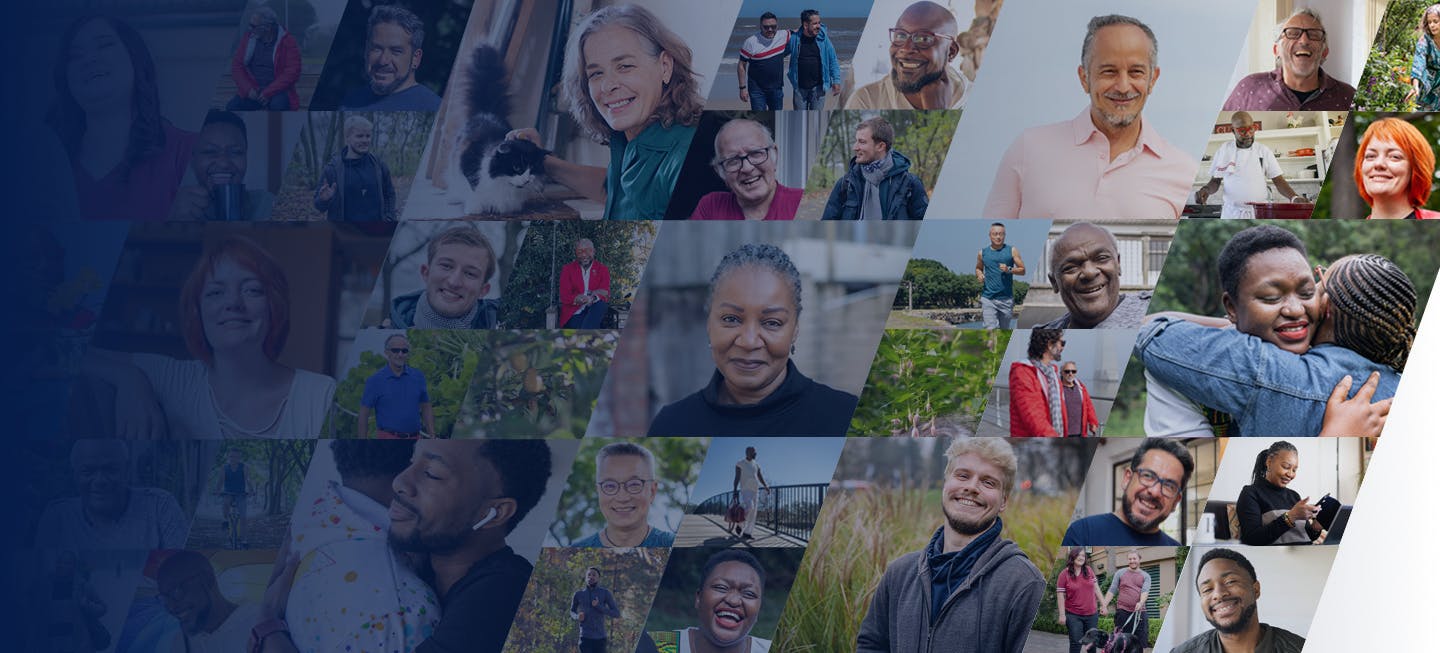More than half of people living with HIV aren’t fully satisfied with their current HIV medication.[1] It’s time to ask why.
They say everything is fine, but is it?
Many people living with HIV experience challenges with their medication that impact their quality of life and wellbeing.
Positive Perspectives Study 2 was a global cross-sectional study of 2389 adults living with HIV in 25 countries. It assessed HIV patient-reported outcomes across several key areas, including: treatment challenges and aspirations, managing multiple medications and patient-healthcare provider engagement.
Understanding the challenges faced by people living with HIV can allow for individualised care, which could improve health outcomes and quality of life.[2]
of people living with HIV reported not being fully satisfied with their HIV medication[1]
of people living with HIV are concerned that HIV-related stigma will adversely affect how they are seen and treated[3]
of people living with HIV would feel stress or anxiety if someone saw their medication[2]
People living with HIV are likely to be on antiretroviral therapy for more than 40 years, increasing concerns about the long-term effects of ART[4]
people living with HIV admitted they miss taking their daily oral HIV medication at least once a month[5]
of people living with HIV are expected to be older than 50 years by 2030[6]
Let’s talk about options
An individualised approach to HIV treatment can answer some of the unmet needs of people living with HIV. Starting conversations about treatment experiences and setting goals beyond viral suppression can be the first step to providing empowering, individualised care for every patient.
To enable individualised treatment, ViiV Healthcare is proud to offer an innovative portfolio of medications – providing a range of options to answer the diverse needs of people living with HIV.
References:
- de los Rios P, Okoli C, Young B, et al. Treatment aspirations and attitudes towards innovative medications among people living with HIV in 25 countries. Popul Med. 2020;2:23. doi:10.18332/popmed/124781
- de Los Rios P, Okoli C, Castellanos E, et al. Physical, emotional, and psychosocial challenges associated with daily dosing of HIV medications and their impact on indicators of quality of life: findings from the Positive Perspectives study. AIDS Behav. 2021;25(3):961-972. doi:10.1007/s10461-020-03055-1
- Okoli C, Van de Velde N, Richman B, et al. Undetectable equals untransmittable (U = U): awareness and associations with health outcomes among people living with HIV in 25 countries. Sex Transm Infect. 2021;97(1):18-26. doi: 10.1136/sextrans-2020-054551.
- Antiretroviral Therapy Cohort Collaboration. Survival of HIV-positive patients starting antiretroviral therapy between 1996 and 2013: a collaborative analysis of cohort studies. Lancet HIV. 2017;4(8):e349-e356. doi:10.1016/S2352-3018(17)30066-8.
- de Los Rios P, Okoli C, Punekar Y, et al. Prevalence, determinants, and impact of suboptimal adherence to HIV medication in 25 countries. Prev Med. 2020;139:106182. doi: 10.1016/j.ypmed.2020.106182.
- Smit M, Brinkman K, Geerlings S, et al; for the ATHENA observational cohort. Future challenges for clinical care of an ageing population infected with HIV: a modelling study. Lancet Infect Dis. 2015;15(7):810-818. doi:10.1016/S1473-3099(15)00056-0.
PM-GB-HVX-WCNT-230006 | August 2023
Adverse events should be reported. Reporting forms and information can be found at www.mhra.gov.uk/yellowcard or search for MHRA Yellowcard in the Google Play or Apple App store. Adverse events should also be reported to GlaxoSmithKline on 0800 221441.
If you are from outside the UK, you can report adverse events to GSK/ViiV by selecting your region and market, here.


